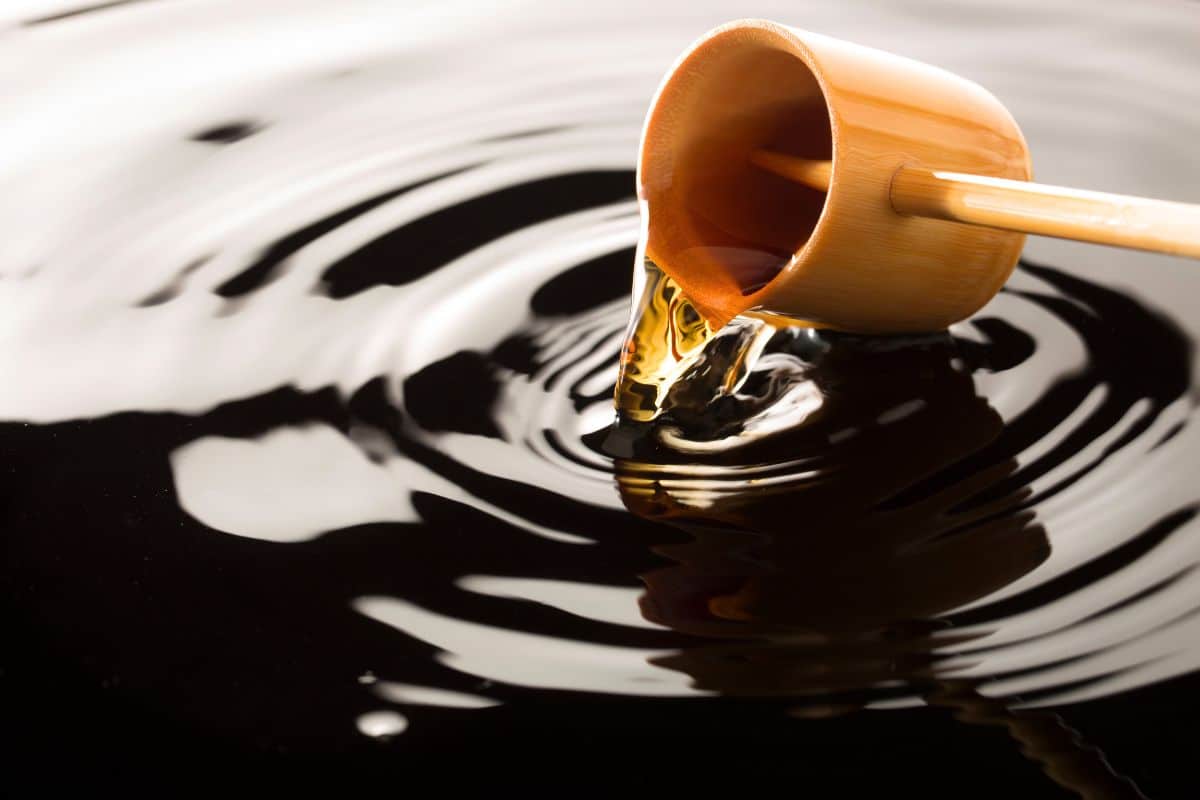Chinese black vinegar, with its complex, smoky, and slightly sweet flavor, is a staple in many Asian dishes. But what do you do when you can’t find it in your pantry or local store?
Let’s explore some substitutes that can mimic its unique taste and enhance your dishes.

What is Chinese Black Vinegar?
Chinese black vinegar, traditionally made from glutinous rice, is known for its rich, malty, and subtly sweet flavor.
It’s a common ingredient in Chinese cuisine, used in braises, sauces, and as a dipping sauce. The vinegar’s dark color and deep flavor make it distinct from other vinegars.
5 Chinese Black Vinegar Substitutes
1. Balsamic Vinegar
Balsamic vinegar, widely available in supermarkets, offers a similar sweetness and a thicker texture, though less acidic than Chinese black vinegar.
It’s versatile in marinades, especially for meat dishes, and can be substituted in a 1:1 ratio. However, it’s important to note that balsamic is generally sweeter and its thicker consistency might require thinning in some recipes.
2. Rice Vinegar (With a Touch of Sugar)
A milder alternative, rice vinegar, when mixed with a little sugar, approximates the sweetness of black vinegar.
This inexpensive substitute is great for dressings, stir-fries and light sauces, where its lighter flavor is a boon. For every tablespoon of rice vinegar, add about ¾ teaspoon of sugar, using it in equal parts to Chinese black vinegar.
3. Apple Cider Vinegar
Apple cider vinegar, with its fruity tartness and hint of sweetness, is a readily available and comparable substitute.
It works exceptionally well in vegetable-based dishes, offering a zesty kick. Use it in equal amounts as Chinese black vinegar, particularly in slaws and salad dressings, for a refreshing twist.
4. Chinkiang Vinegar
Chinkiang vinegar, a type of black vinegar available in Asian markets, is the closest in flavor profile to Chinese black vinegar. This makes it ideal for authentic Chinese recipes, offering a near-identical match in both flavor and aroma.
It might be slightly pricier but is a worthy investment for those seeking authenticity, used one-for-one in recipes.
5. A Mix of Red Wine Vinegar and Molasses
For a DIY approach, combine red wine vinegar with a bit of molasses. This blend emulates the balance of acidity and sweetness found in black vinegar.
Adjust the thickness as needed for your recipe, and use this mix in marinades and meat glazes to introduce a unique flavor, suitable for adventurous cooks.
How to Incorporate These Substitutes
When selecting a substitute for Chinese black vinegar, it’s crucial to consider the flavor dynamics of your dish. For lighter, more delicate recipes, a milder substitute like rice vinegar sweetened with sugar is ideal.
In contrast, heartier dishes may benefit from the richer, deeper notes of balsamic vinegar. Start by using small amounts and adjust according to taste.
Final Thoughts
Each black vinegar substitute offers its own unique qualities, providing both familiar and new culinary possibilities.
By understanding the nuances of these substitutes, you can continue to craft delicious, authentic-tasting dishes, ensuring your culinary adventures remain as exciting and satisfying as ever.